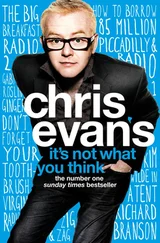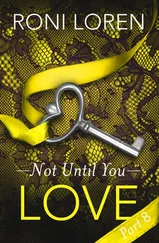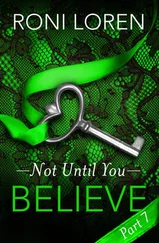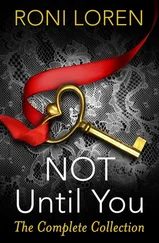‘Other men are finding their way,’ she said. ‘Other men know what and what to do to move ahead. Your own is just different. Is it certificate that we shall eat? If I say that you’re useless, it’ll be as if I’m insulting you. But since you people met, I can’t see anything at all – not one single thing – that Ola has benefited from you. As far as I’m concerned, you’re a complete disappointment.’
My heart rent in two. Different colours of bright little stars danced in front of my eyes. I felt as if she had risen from her chair, balanced one fat foot firmly on the floor, and kicked in my teeth with the other. For the first time, I wondered what my family – what Ola – really thought of me. Did they also feel that, I, Kingsley Onyeaghalanwanneya Ibe, was a disappointment?
Maybe I had not been as smart as other young men who were ‘finding their way’. Maybe I had been too carried away by my academic achievements. After all, my father, with all his brilliance, was wallowing in poverty. I shuddered at the thought of ending up like him – full brain, empty pocket.
My thoughts wandered to my mother’s half-brother, Uncle Boniface. He had lived with us when I was a child. At the time, he slept on a mattress on the living room floor and ate with a plastic plate on his knees in the kitchen like Odinkemmelu and Chikaodinaka. He had repeated several classes more than once, and eventually left secondary school without a certificate. But Uncle Boniface knew exactly what he wanted from the future. And he never kept quiet about it.
‘Kings, sit down and watch me,’ he would say. ‘Let me show you how rich men behave.’
Then he would puff out his arms and stride around the living room in slow, unhurried steps. Then he would stop and frown and dim his eyes, and look up into the air. Then he would sit in my father’s favourite chair, cross his legs, and shout orders at invisible servants.
‘Come and take away these plates!’ he would bark at one.
‘Will you stop wasting my time!’ he would howl at another. ‘Do you think I pay you so much money for doing nothing?’
Then he would glare at invisible naira notes in his hands and chuck them onto the floor.
‘Kings, come and take them and throw them in the bin,’ he would say. ‘These notes are too dirty to be in my wallet.’
It used to be a fun game that tickled my fancy no end. Not any more. Despite his poor academic record, Uncle Boniface was extremely wealthy. Rumours abounded of his innumerable cars and real estate and frequent trips abroad. And here I was sitting beside Ola’s mother, a complete disappointment.
Fear gripped my heart tighter. My mother-in-law-to-be had clearly run out of patience with me. I needed to do something quick. As soon as things turned around, she would become my best friend again. I had seen it happen before. When I was still the only child after five years of for-better-for-worse, my father’s family had fallen out of love with my mother. And like Ola’s mother, they were very open about their grief.
‘You need to put on more weight,’ one said. ‘How can your womb function properly inside such a skinny body?’
‘I wonder how you manage the simplest household chores,’ yet another one said. ‘You look like a dried cornstalk that would break into two at the slightest push.’
‘I don’t even know what Paulinus found attractive about you in the first place,’ yet another one said. ‘No breasts, no buttocks… yet you call yourself a woman.’
One afternoon, after my father’s sisters had visited and left, Oluchi, my mother’s niece who was living with us at the time, carried me in her arms and patted my mother’s back until her sobbing subsided.
‘Mama Kingsley,’ she whispered, ‘there’s something I’ve been wanting to tell you but I wasn’t sure how to say it before.’
My mother sniffed.
‘The last time I went home, there’s something my mother and Aunty Amaechi were talking about.’
My mother pricked up her ears.
‘They said that because of all these problems Papa Kingsley’s people have been having since their father died, that maybe somebody from their family has padlocked your womb and thrown away the keys so that you won’t be able to have more children.’
My paternal grandfather had died shortly after I was born, leaving behind some few plots of empty land and cassava farms which his living nine-sons-and-fifteen-daughters-from-three-wives had fought vigorously to put inside their pockets. The wrangling had produced such bile that there were suspicions of some family members engaging diabolical means to frustrate others into relinquishing their inheritance. From what Oluchi had said, it appeared that my mother’s family regarded her infertility as the outcome of one of such evil machinations.
Oluchi continued.
‘Mama Kingsley, I think you should do something about it.
There are some native doctors in Ohaozara who I hear are very good when it comes to unlocking people’s wombs. Maybe you should speak to Papa Kingsley so that both of you can go there and see one of them.’
My mother insists that her niece’s advice went in one ear and out the other. She and my father never consulted any native doctors. They did not swallow any alligator pepper and animal blood concoctions, my mother did not dance naked under the moonlight with a white cock draped around her neck.
‘I just kept crying to God,’ my mother had told me. ‘I knew He would intervene in His own time.’
One look at Godfrey, Eugene, and Charity, and God’s intervention became clear. That was what I needed now – divine intervention.
I murmured my appreciation for her concern to Ola’s mother and hurried home. Then I ransacked my pile of dirty clothes for the flyer I received from the early morning evangelists of the other day. My very own special miracle from heaven.
As a child, I had gone to church regularly with my parents. So regularly, in fact, that I had perfected the art of sleeping at the precise moment when Rev. Father Benedict permitted us to sit, and waking at the exact point when he chanted for us to stand. On entering university, however, it occurred to me that I did not have to go to church any more. There was nobody to take me, nobody to remind me, no point in going. So I stopped.
This particular Sunday, my parents had left for Mass before I got ready to receive my portion of divine intervention. Agreed, we were not under any particular restriction not to go anywhere apart from ‘The One True Church’; still, I knew enough to keep quiet about where I was going. Everybody agreed that the Pentecostals were weird.
But these were dire times. Dire times required drastic measures. Take my Aunty Dimma, my mother’s cousin and very close friend. A few years ago, she had boarded a local flight from Lagos to Port Harcourt, and the turbulent voyage had ended with the plane crash-landing on the tarmac. Shortly after that, one of the tyres on her Toyota Carina had burst on the highway. Then a branch had fallen from the tree under which she parked her car and smashed the windscreen, the very same tree under which she had parked for the past five years. All these incidents occurred within the space of six weeks. Aunty Dimma did not need a soothsayer to explain that death was after her life. Somebody invited her to a church where she was assured that all her enemies would flee and all her troubles cease. Believe it or not, my very own Aunty Dimma – the height of elegance and the essence of vanity – had actually succumbed. Today, she was a bona fide Bible-quoting, hallelujah-chanting, tongue-talking Pentecostal Christian.
I lifted the flyer from the dressing table and headed out.
There must have been at least twenty different churches all holding services on the same street, at the same time, on this Sunday morning. Some were in garages, some were in flats, some were under tents erected at the side of buildings. Some even had loudspeakers positioned outside to bellow their live services into the air. I commiserated with every single resident of that street.
Читать дальше
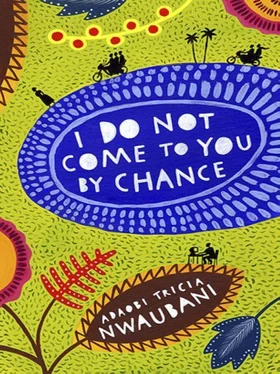
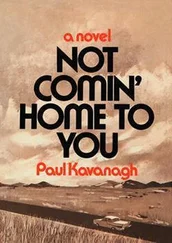

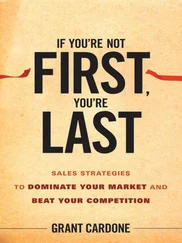

![Майкл Азеррад - Come as you are - история Nirvana, рассказанная Куртом Кобейном и записанная Майклом Азеррадом [litres]](/books/392533/majkl-azerrad-come-as-you-are-istoriya-nirvana-ra-thumb.webp)



